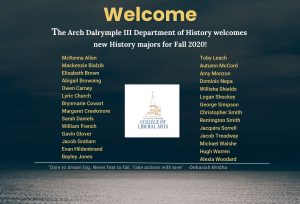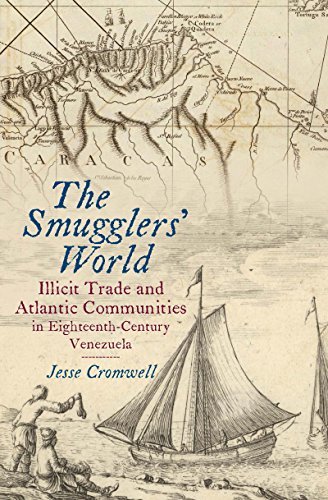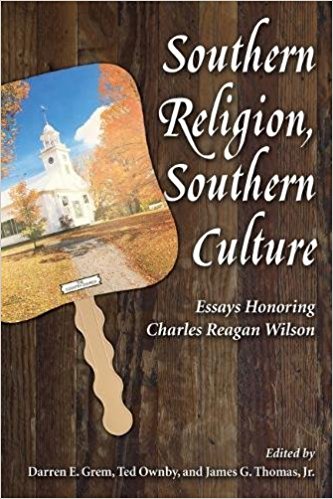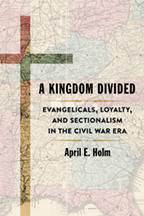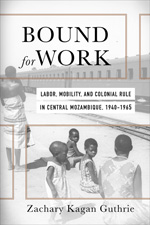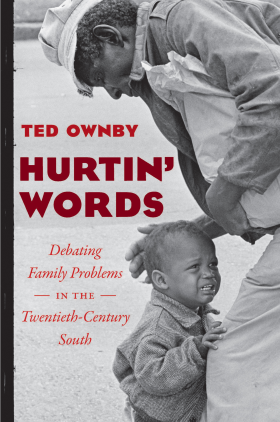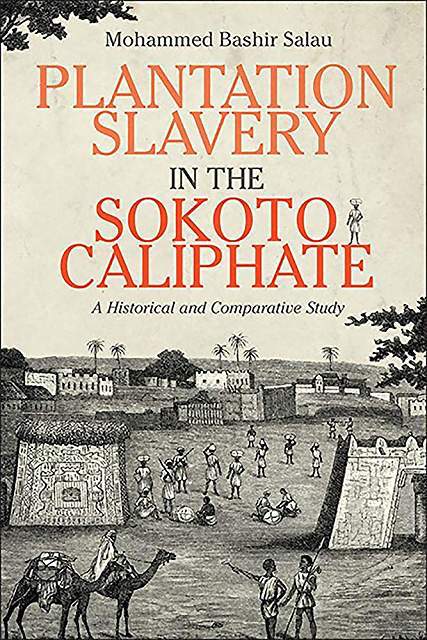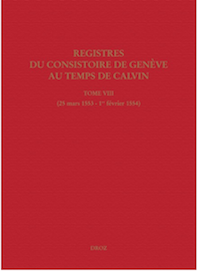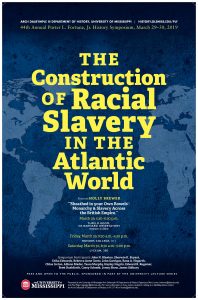Archive for the ‘Uncategorized’ Category
Professor Garrett Felber Wins Fellowship at Harvard
Garrett Felber will focus on writing two books examining African Americans and imprisonment

Garrett Felber
AUGUST 14, 2020 BY KATHRYN ALBRITTON
A University of Mississippi history professor is set to begin a one-year fellowship at the W.E.B. Du Bois Research Institute at Harvard University’s Hutchins Center for African and African American Research in September.
Garrett Felber, assistant professor of history at UM, is among just 16 chosen fellows this year. Founded in 1975, the W.E.B. Du Bois Research Institute annually grants up to 20 scholars from across the world to perform individual research at either the predoctoral or postdoctoral level into an array of topics related to African and African American studies.
Felber will spend the year working on two book projects: “We Are All Political Prisoners: The Revolutionary Life of Martin Sostre” and “The Norfolk Plan: The Community Prison in the Age of Mass Incarceration.” Both works will focus on different aspects of Felber’s primary research topic: 20th-century African American social movements, Black radicalism and efforts to reform or abolish prisons.
Because of the COVID-19 pandemic, Felber will be working remotely from Oregon.
“This fellowship will allow me the time to work on two important projects that I hope will advance the understanding not only of the specific topics, but of the relationship between Black people in America and the carceral state,” Felber said.
Felber is the author of “Those Who Know Don’t Say: The Nation of Islam, the Black Freedom Movement and the Carceral State” (UNC Press, 2020) and co-author of “The Portable Malcolm X Reader” with the late Manning Marable (Penguin Classics, 2013). Felber’s work has been published in the Journal of American History, Journal of African American History, Journal of Social History and Souls.
He also served as lead organizer for the Making and Unmaking Mass Incarceration conference and is project director of the Parchman Oral History Project, a collaborative oral history, archival and documentary storytelling project on incarceration in Mississippi. He co-founded Liberation Literacy, an abolitionist collective inside and outside Oregon prisons, and spearheaded the Prison Abolitionist Syllabus, a reading list published by Black Perspectives that highlighted and contextualized the prison strikes of 2016 and 2018.
Felber not only researches and writes about prisons; he teaches in them. In Mississippi, he has taught two classes at Marshall County Correctional Facility in Holly Springs.
“Garrett is an indefatigable researcher and community builder whose knowledge of the carceral state stems not merely from archival digging, but also from his volunteer engagement with prisons as a teacher,” said Noell Wilson, professor and chair of the Arch Dalrymple III Department of History.
“We are thrilled with this award because it both recognizes his national profile in the field of African American history and provides critical space for him to advance two pioneering interpretive projects.”
Former Head of Southern Studies, Ted Ownby, Receives Fulbright Award
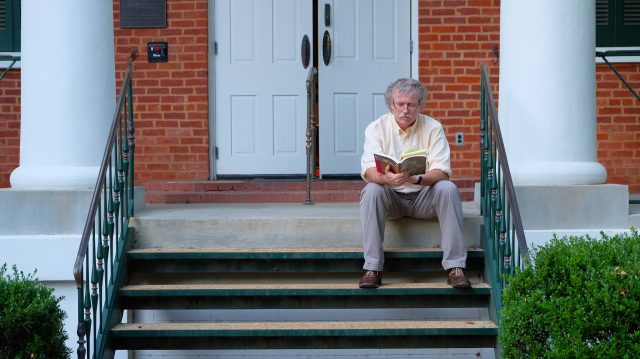 OXFORD, Miss. – After Ted Ownby stepped down as the director of the Center for the Study of Southern Culture at the University of Mississippi in 2019, he wanted to do something different, so he decided to apply for a Fulbright Award.
OXFORD, Miss. – After Ted Ownby stepped down as the director of the Center for the Study of Southern Culture at the University of Mississippi in 2019, he wanted to do something different, so he decided to apply for a Fulbright Award.
To his delight, he received word that he will be the Danish Distinguished Chair in American Studies at the University of Southern Denmark, which combines research and teaching and is the most prestigious Fulbright grant in Denmark.
Ownby, the UM William Winter Professor of History and professor of Southern studies, made his decision after attending the Southern Studies Forum in Denmark last year.
“The Center for American Studies at the University of Southern Denmark is a lively group with several scholars interested in the American South, and the university is an attractive place; I remember walking trails, bicycles and lots of birds,” Ownby said.
“The city of Odense is Denmark’s third-largest city, famous among other things as the home of Hans Christian Andersen, and I look forward to getting to know it. I’ll teach in English, but I’m slowly and awkwardly learning some Danish.”
He will teach one class to either graduate or upper-level undergraduates with class sizes of approximately 25-45 students. He also will give at least one public lecture at the University of Southern Denmark, attend faculty meetings, talk to faculty and students, and be available to travel to other European universities.
Katie McKee, director of the Center for the Study of Southern Culture, has been a colleague of Ownby for many years.
“This Fulbright is a tremendous opportunity for Dr. Ownby, a well-deserved chance for adventure after many years of serving as center director and a real testament to the excellence of his scholarship,” McKee said.
The award was intended for the 2020-21 academic year, but the COVID-19 pandemic shortened the stay to the spring semester only, which begins in January 2021. Coincidentally, robotics researchers at the University of Southern Denmark have developed the world’s first fully automatic robot capable of carrying out throat swabs for COVID-19, so that healthcare professionals are not exposed to the risk of infection.
“I proposed two classes when I thought I would be there for two semesters: one on my current book project on ideas about innocence in 20th-century Mississippi and the other a broader class on recent scholarship in Southern history,” Ownby said.
“Now the plan is either to teach the class about Mississippi, or maybe to team teach with a couple of colleagues in Denmark. Of course, it’s hard to plan right now, because it’s possible that health conditions won’t allow international travel.”
January should be an especially intriguing time to be teaching about the U.S. because classes will begin just a few days after the presidential inauguration.
“That election, no matter what I’m teaching about, will likely be a starting point for some good discussions,” Ownby said. “More broadly, teaching U.S. history outside the U.S. is always useful – I saw this teaching in the Fulbright program in Italy almost 30 years ago – because it makes faculty think about the questions we start with and encourages us to think about making comparisons we might not have considered.”
Colleagues in the history department are especially thrilled with Ownby’s award, said Noell Wilson, chair of history and Croft Associate Professor of History and International Studies.
“It reveals the global profile of our faculty, even those who work primarily on U.S. history and not necessarily (on) international topics,” Wilson said. “We are constantly looking to build intellectual bridges with colleagues in Europe and beyond and are grateful to Ted for sharing his expertise with scholars and students in Denmark to establish collaborations in Scandinavia.”
Both the Danish and U.S. governments financially support this program. The Fulbright U.S. Scholar Program offers approximately some 470 teaching, research or combination teaching/research awards in more than 125 countries.
Opportunities are available for college and university faculty and administrators as well as for professionals, artists, journalists, scientists, lawyers, independent scholars and many others. Besides several new program models designed to meet the changing needs of U.S. academics and professionals, Fulbright offers flexible awards including multicountry opportunities.
Statement by US Historians on Recently Released Confederate Monument Plans
On June 22, 2020, the Americanist faculty in the Arch Dalrymple III Department of History released a statement in response to recently obtained plans created by the University of Mississippi and approved by the Institutions of Higher Learning Board for the relocation of the Confederate monument on campus.
June 22, 2020
We, the undersigned American historians working at the University of Mississippi, strongly oppose the recently released plans to renovate and add headstones to the Civil War cemetery on campus as part of the relocation of the Confederate monument. Ideally, we believe this monument should be removed from campus entirely, given its explicitly white supremacist origins. But if it remains on campus, it should not be glorified and the university should make it clear that it rejects the racist and hateful ideology this monument represents.
We oppose the renovation of the cemetery and the addition of headstones because:
- Cemetery renovations and headstones were not part of the relocation proposal circulated last December and the new plan was never shared with the university as a whole. The proposal falsely asserted that the new plan had “received written endorsement from various campus constituencies,” when in reality, at least two of the constituencies named, and perhaps all, were not aware of the details of this new plan prior to the release of the IHL Board’s June 18th agenda. The university continues to develop plans for the site beyond what was presented to the IHL Board, according to a university spokesman in a statement to Mississippi Today on June 19, 2020. The university has not announced who is responsible for developing these plans and has not made these plans, or those making them, available for public scrutiny. None of the undersigned historians are involved in any way.
- Investing resources in creating and preserving Confederate symbols sends the wrong message about the university’s priorities. Confederate monuments and related symbols are coming down across the South. Adding headstones to the cemetery in conjunction with the monument relocation betrays student, faculty, and staff demands, which were aimed at removing Confederate symbols from campus, not simply moving a monument from one place to another. As the ASB’s 2019 resolution plainly asserted, “Confederate ideology directly violates the tenets of the University Creed that support fairness, civility, and respect for the dignity of each person.”
- Beautifying and aggrandizing the cemetery during the relocation of the Confederate monument reinforces the university’s troubling pattern of making something-for-everyone compromises rather than making an unambiguous move toward justice and inclusivity. Moving the monument should be a clear stand against racism, not another embarrassing attempt to placate those who wish to maintain the university’s connection to Confederate symbols. It is especially troubling that the university appears to have misled official representatives of its current students, faculty, and staff by misrepresenting their public and deliberative actions, while secretly catering to the private fantasies of individual donors to promote a distorted version of the university’s history at the expense of its present and future.
- Combining headstones and other cemetery renovations with the relocation of the monument turns the monument into part of a new, larger Confederate symbol on campus. We should not create new spaces that enshrine Lost Cause ideology, make our students feel unwelcome, and attract neoconfederate groups to campus. The university has no business creating a venue for glorifying the Confederacy that will, in turn, threaten students.
- Headstones are expensive and would require costly maintenance. Time spent raising money for these renovations is time wasted. The university should direct its fundraising efforts at developing additional minority spaces on campus, renovating and finally renaming Vardaman Hall, hiring additional Black and other minority faculty and staff, and providing all employees with a living wage Even if private donations underwrite the initial installation of headstones, the university will incur a raft of ongoing expenses—everything from weather-mitigation to grounds keeping to security. Moving forward, campus stakeholders will continue wondering why university leaders accepted, raised, or allocated funds toward the cemetery when those monies could have been used to advance equity on campus and the educational mission of the university at large.
- Headstones would distort the historical record. The cemetery itself originally functioned as a place to store the bodies of the soldiers who died at the temporary hospital created on campus after the Civil War interrupted classes in 1861. Permanent headstones were never installed and nothing that is currently visible on the site is original to the Civil War era. Rather than serve an educational purpose, headstones would misrepresent the site and its history.
- Headstone names could never be accurate. We have limited knowledge about which soldiers were buried in the cemetery and which remain there, and we know even less about where on the site they were laid to rest. The documents we would need to do this work simply do not exist. We have no way to accurately identify the occupants of the cemetery, let alone determine their location on the grounds.
- It would be disrespectful to the dead to install inaccurate headstones. Placing a headstone with one soldier’s name on it above the remains of an entirely different person (whose identity can never be known) would be a poor tribute to either one of them.
- Cemetery renovations and headstones will hamper rather than enhance our understanding of this site as it connects to the role the university played as a hospital during the Civil War. The monument currently standing on the Circle is not a Civil War artifact but a Jim Crow-era monument to white supremacy. It was erected in 1906 by white supremacists to promote Lost Cause ideology well after the Civil War had ended. Its dedication speech praised Confederates for what they did to “preserve Anglo-Saxon civilization” by terrorizing Black southerners and stripping them of civil and political rights during Reconstruction. These renovations do not create a “site for educational purposes.” On the contrary, connecting this monument to a cemetery enhanced by brand new, historically inaccurate headstones implies that both the monument and the headstones are Civil War artifacts, and thus uses Civil War history to promote white supremacist Lost Cause ideology.
As historians, we know that monuments reflect the values of the people who erect them. To glorify the cemetery and the relocated Confederate monument in the ahistorical ways the university has proposed is to build a new Confederate monument in 2020, effectively reenacting the injustice that white supremacists committed when they erected it in 1906. In doing so, the university will create a new destination for neoconfederate and other extremist groups on campus, not only violating its stated values, but also jeopardizing the peace and safety of its students, faculty, and staff. We urge the university to leave the cemetery as it currently is. Further, to begin to repair the breach of trust with campus constituents that the university has committed during this episode, we demand that the university immediately make public all records of its deliberations and decision-making regarding the plans for the relocation of the Confederate monument and the redevelopment of the cemetery.
Signed,
Mikaela M. Adams, Associate Professor of History
Garrett Felber, Assistant Professor of History
Darren E. Grem, Associate Professor of History and Southern Studies
Shennette Garrett-Scott, Associate Professor of History and African American Studies
April Holm, Associate Professor of History and Interim Director, Center for Civil War Research
Rebecca K. Marchiel, Assistant Professor of History
Ted Ownby, Professor of History and Southern Studies
Eva Payne, Assistant Professor of History
Paul J. Polgar, Assistant Professor of History
Jarod Roll, Associate Professor of History
Charles Ross, Professor of History and African-American Studies
Susan Gaunt Stearns, Assistant Professor of History
Anne Twitty, Associate Professor of History
Jessica Wilkerson, Assistant Professor of History and Southern Studies
Andrew Mellon Foundation Recognizes Invisible Histories Project
IHP-Mississippi satellite project lauded for oral history research
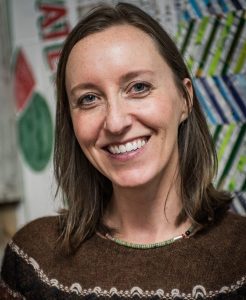 The Andrew W. Mellon Foundation has recognized the work of several University of Mississippi partners through a $300,000 grant supporting the collection, preservation, future research and accessibility of LGBTQ history in Alabama, Mississippi and Georgia.
The Andrew W. Mellon Foundation has recognized the work of several University of Mississippi partners through a $300,000 grant supporting the collection, preservation, future research and accessibility of LGBTQ history in Alabama, Mississippi and Georgia.
The grant went to the Invisible Histories Project, founded in 2016 by Joshua Burford and Maigen Sullivan and based in Birmingham, Alabama, with money also going to the satellite Invisible Histories Project-Mississippi.
Mississippi partners on the grant include the university’s Center for the Study of Southern Culture, Sarah Isom Center for Women and Gender Studies, and Department of Archives and Special Collections. The goal of the project is to expand and make publicly available manuscript and oral history collections that document LGBTQ histories of Mississippi.
“The project provides a unique opportunity to collaborate across campus departments and units, as well as across the Southeast, to bring together scholars devoted to interdisciplinary research,” said Jessica Wilkerson, UM associate professor of history and Southern Studies. “I’m excited to work with my colleagues on a cutting-edge, necessary project to document queer and Southern history.”
Besides Wilkerson, faculty members primarily involved in the project are Amy McDowell, assistant professor of sociology, and Jaime Harker, Isom Center director and professor of English.
The seeds of IHP-Mississippi were planted last year when Burford visited the Center for the Study of Southern Culture and met with Wilkerson and her Queer Southern History class, which was developing an oral history project. During that visit, Southern studies faculty and staff, the Isom Center, and Special Collections and Archives began exploring the possibility of starting an IHP satellite project at Ole Miss.
The university is the only IHP satellite site, although plans are for the University of West Georgia to become a satellite in spring 2020, Burford said.
“We have received the most amazing support from UM for this project and your outstanding staff and faculty have really been leaders in the expansion of our work,” said Burford, IHP’s director of community engagement. “They saw in us the potential of what Invisible Histories Project could do and invested early.
“There is so much amazing queer history in Mississippi and with the help of your campus, we are going to be leaders in the field of preservation and research of LGBTQ history both in and out of the South.”
Along with receiving $10,000 annually for two years to support the project, IHP-Mississippi will be part of the bigger IHP model. The project’s staff will provide support through site visits, helping to locate research opportunities, advising on queer history courses and research development, connecting institutions to repositories and community organizations, providing branding and paperwork, developing a site plan of goals and outcomes, and providing trainings for students and faculty.
Beyond that, joining the IHP network is mportant because it allows participants to learn from archivists and public historians already doing this work, Wilkerson said.
Burford and Sullivan will visit Oxford this summer to meet with the project team and develop a site plan for the 2019-20 academic year.
The project will benefit students and hopefully help attract up-and-coming scholars of the queer South, Wilkerson said.
“Of course, Jaime Harker is leading the way as a faculty member with her book ‘The Lesbian South,’” Wilkerson said.”Mostly, I was inspired by the group of students in my spring Southern studies seminar.
“They laid the groundwork for this project by conducting oral history interviews with gay, lesbian and queer community members in Oxford, and they showed me that a larger project was possible.”
Additionally, Wilkerson’s fall 2019 Southern studies graduate seminar will expand the oral history project begun last spring on Mississippi LGBTQ history. Wilkerson and McDowell also received an Isom Fellowship to help support the expanding LGBTQ oral history and archiving project.
The Andrew W. Mellon Foundation endeavors to strengthen, promote and, where necessary, defend the contributions of the humanities and the arts to human flourishing and to the well-being of diverse and democratic societies. To this end, it supports institutions of higher education and culture as they renew and provide access to an invaluable heritage of ambitious, path-breaking work.
The foundation makes grants in four core program areas: Higher Education and Scholarship in the Humanities, Arts and Cultural Heritage, Scholarly Communications, and International Higher Education and Strategic Projects.
More information on the Invisible Histories Project can be found at https://www.invisiblehistory.org/.
UM Master’s Student Katelyn Frazer wins Fulbright Award
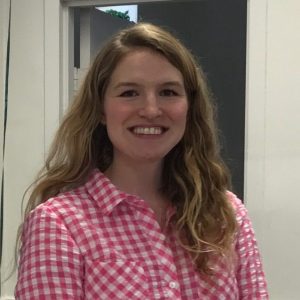 University of Mississippi student Katelyn Frazer in the Arch Dalrymple III Department of History, has been selected for a Fulbright Award to Spain.
University of Mississippi student Katelyn Frazer in the Arch Dalrymple III Department of History, has been selected for a Fulbright Award to Spain.
The Fulbright Program is devoted to increasing mutual understanding between the people of the United States and the people of other countries. Fulbright is the world’s largest and most diverse international educational exchange program. As a grantee, you will join the ranks of distinguished participants in the program. Fulbright alumni have become heads of state, judges, ambassadors, cabinet ministers, CEOs, and university presidents, as well as leading journalists, artists, scientists, and teachers. They include 59 Nobel Laureates, 82 Pulitzer Prize winners, 72 MacArthur Fellows, 16 Presidential Medal of Freedom recipients, and thousands of leaders across the private, public and non-profit sectors. Since its inception in 1946, more than 390,000 “Fulbrighters” have participated in the Program.
Jesse Cromwell wins Book Prize in Latin American History
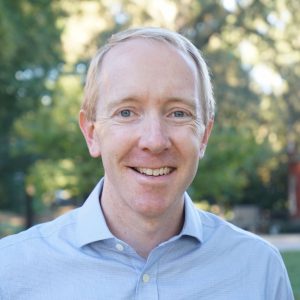 On April 6, 2019, Jesse Cromwell won the 2018 Bandelier-Lavrin Book Prize in Colonial Latin American History at the 66th Annual Meeting of the Rocky Mountain Council for Latin American Studies for his book The Smugglers’ World: Illicit Trade and Atlantic Communities in Eighteenth-Century Venezuela (Omohundro Institute – University of North Carolina Press, 2018). The prize is awarded to the best book published by a member of the council in the previous calendar year on the subject of colonial Latin American history. The Rocky Mountain Council for Latin American Studies is the oldest Latin American area studies organization in the United States. Jesse’s book examines a critical part of Atlantic trade for a neglected corner of the Spanish Empire. Forsaken by the Spanish fleet system, Venezuelan colonists struggled to obtain European foods and goods. They found a solution in exchanging cacao, a coveted luxury, for the necessities of life provided by contrabandists from the Dutch, English, and French Caribbean. Smuggling became more than an economic transaction or imperial worry; persistent local need elevated the practice to a communal ethos, and Venezuelans defended their commercial autonomy through passive measures and even violent political protests. Negotiations between the Spanish state and its subjects over smuggling formed a key part of empire making and maintenance in the eighteenth century. More information on the book can be found here.
On April 6, 2019, Jesse Cromwell won the 2018 Bandelier-Lavrin Book Prize in Colonial Latin American History at the 66th Annual Meeting of the Rocky Mountain Council for Latin American Studies for his book The Smugglers’ World: Illicit Trade and Atlantic Communities in Eighteenth-Century Venezuela (Omohundro Institute – University of North Carolina Press, 2018). The prize is awarded to the best book published by a member of the council in the previous calendar year on the subject of colonial Latin American history. The Rocky Mountain Council for Latin American Studies is the oldest Latin American area studies organization in the United States. Jesse’s book examines a critical part of Atlantic trade for a neglected corner of the Spanish Empire. Forsaken by the Spanish fleet system, Venezuelan colonists struggled to obtain European foods and goods. They found a solution in exchanging cacao, a coveted luxury, for the necessities of life provided by contrabandists from the Dutch, English, and French Caribbean. Smuggling became more than an economic transaction or imperial worry; persistent local need elevated the practice to a communal ethos, and Venezuelans defended their commercial autonomy through passive measures and even violent political protests. Negotiations between the Spanish state and its subjects over smuggling formed a key part of empire making and maintenance in the eighteenth century. More information on the book can be found here.
Jesse Cromwell is Associate Professor of colonial Latin American history in the Arch Dalrymple III Department of History at the University of Mississippi. For more information on Dr. Cromwell’s work, please see his faculty page.
Learn about Study Abroad on April 18
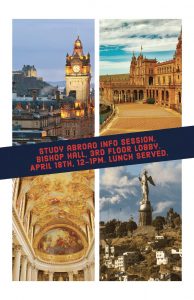 Are you thinking about Study Abroad? Want to learn more about where you can travel? How it’ll affect your progress towards your degree? What it will cost?
Are you thinking about Study Abroad? Want to learn more about where you can travel? How it’ll affect your progress towards your degree? What it will cost?
The Undergraduate Committee has you covered! Come join us on Thursday, April 18 from noon to 1PM in the Bishop Hall Third Floor lobby for information and free pizza!
Porter Fortune Conference, March 29-30, 2019
As part of a campus wide commemoration of the 400th year of the arrival of the first Africans in British North America coordinated by the UM slavery research group, we will examine the emergence of racially defined slavery in the Atlantic World and how it was challenged from the Age of Exploration through the Napoleonic Wars. 16 speakers will address the variety of racially constructed systems of chattel bondage created by different European imperial powers in the Americas, along with the ways in which challenges to these constructions both threatened and reinforced regimes of racial slavery.
An important goal of this proposed symposium is a much-needed reevaluation of the historiography dating to the 1950s, which began the discussion of the significance of the events of August 20, 1619 with a micro-analysis of racial slavery’s emergence in seventeenth century Virginia. By contrast, our conference will take a much broader chronological and geographical scope, reflecting how scholarship on this topic has moved far beyond the confines of early colonial Virginia alone.
Organized by Paul Polgar and Marc Lerner
Participants: John Blanton, Holly Brewer, Sherwin Bryant, Erika Edwards, John Garrigus, Rebecca Goetz, Rana Hogarth, Chloe Ireton, Allison Madar, Tessa Murphy, Hayley Negrin, Edward Rugemer, Brett Rushforth, Casey Schmitt, Jenny Shaw, James Sidbury
For schedule Please Click Here>>
